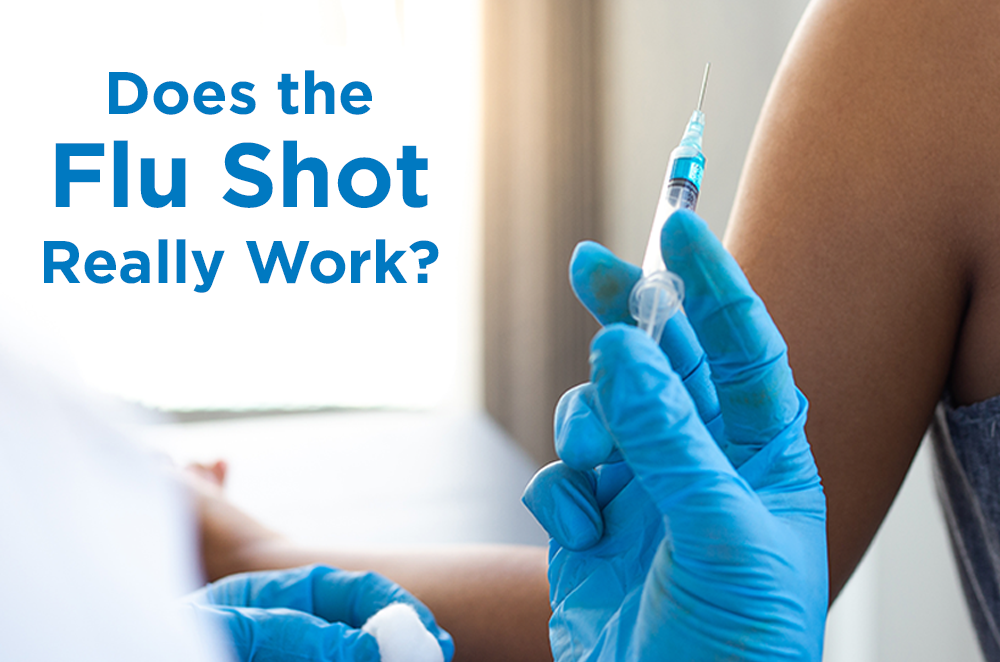The flu shot is one of the most talked-about topics this time of year. With all of the myths floating around, it’s easy to get confused. The truth is, getting your flu shot is one of the most powerful steps you can take to protect yourself and your family. Let’s bust some of the most common myths and arm you with the facts you need to stay healthy this season.
Myth #1: The flu shot can give you the flu.
FACT: This is one of the most persistent myths out there, but it’s simply not true. The standard flu shot is made with inactivated (or “killed”) viruses, so it’s impossible for it to cause the flu. After getting the shot, some people might experience mild side effects like a sore arm, a low-grade fever, or minor aches. These are normal signs that your body is building its immune response, not that you’ve been infected with the flu.
Furthermore it takes about two weeks for the antibodies to develop and for the vaccine to become fully effective. If you get sick right after your shot, you were likely exposed to the flu virus before the vaccine had a chance to protect you, or you may have a different respiratory illness.
Myth #2: The flu isn’t a big deal—it’s just a bad cold.
FACT: The flu is not just a bad cold. In fact, it’s a serious respiratory illness that can lead to severe complications, hospitalization, and even death. The flu can be especially dangerous for young children, the elderly, pregnant women, and people with chronic health conditions. However, even healthy, young people can get very sick from the flu.
Getting vaccinated not only protects you but also helps protect the people around you who are more vulnerable to severe illness. It’s a key part of our community’s public health strategy, known as “herd immunity.”
Myth #3: I’m young and healthy, so I don’t need a flu shot.
FACT: While it’s true that some people are at higher risk for complications, the Centers for Disease Control and Prevention (CDC) recommends that everyone aged six months and older get an annual flu shot. Why? Because anyone can get the flu, and anyone can spread it.
Even if you don’t get very sick yourself, you could be a carrier and unknowingly pass the virus to a family member, a friend, or a coworker who could become seriously ill. The flu shot is a simple, effective way to reduce that risk and protect your loved ones.
Myth #4: I got the flu shot last year, so I’m protected.
FACT: Your body’s immune response from the flu vaccine declines over time. Additionally, the flu virus is constantly changing and evolving. That’s why each year, the flu vaccine is updated to protect against the specific flu strains that are expected to be most common during the upcoming season. To stay protected, you need to get a new flu shot every single year.
Myth #5: The flu shot isn’t effective.
FACT: No vaccine is 100% effective, and the flu shot is no different. However, it’s the single best tool we have to prevent the flu and its complications. Studies show that even if you do get sick after getting vaccinated, the flu shot can significantly reduce the severity of your illness and lower your risk of hospitalization and death.
By getting the flu short, you give your body a huge advantage in the fight against the virus. It’s a proactive step that makes a major difference in your health this season.
Your Role in Flu Prevention
Getting your flu shot is one of the simplest, safest, and most effective ways to protect yourself and your community this season. Don’t wait until the flu is widespread—get vaccinated as soon as possible. You can get your shot at your doctor’s office or many local pharmacies. As your community hospital, we’re here to help you and your family stay healthy all year long.
If you need a general practitioner or have questions about the flu vaccine, our team of dedicated providers is here for you. Find a provider near you at ccmhhealth.com/providers. Let’s make this a healthy season together!
Resources:
https://www.cdc.gov/flu/vaccines/keyfacts.html
https://www.cdc.gov/niosh/docs/2014-103/pdfs/2014-103.pdf
Disclaimer:
The Comanche County Memorial Hospital website does not provide specific medical advice for individual cases. Comanche County Memorial Hospital does not endorse any medical or professional services obtained through information provided on this site, articles on the site or any links on this site.
Use of the information obtained by the Comanche County Memorial Hospital website does not replace medical advice given by a qualified medical provider to meet the medical needs of our readers or others.
While content is frequently updated, medical information changes quickly. Information may be out of date, and/or contain inaccuracies or typographical errors. For questions or concerns, please contact us at contact@ccmhhealth.com.

